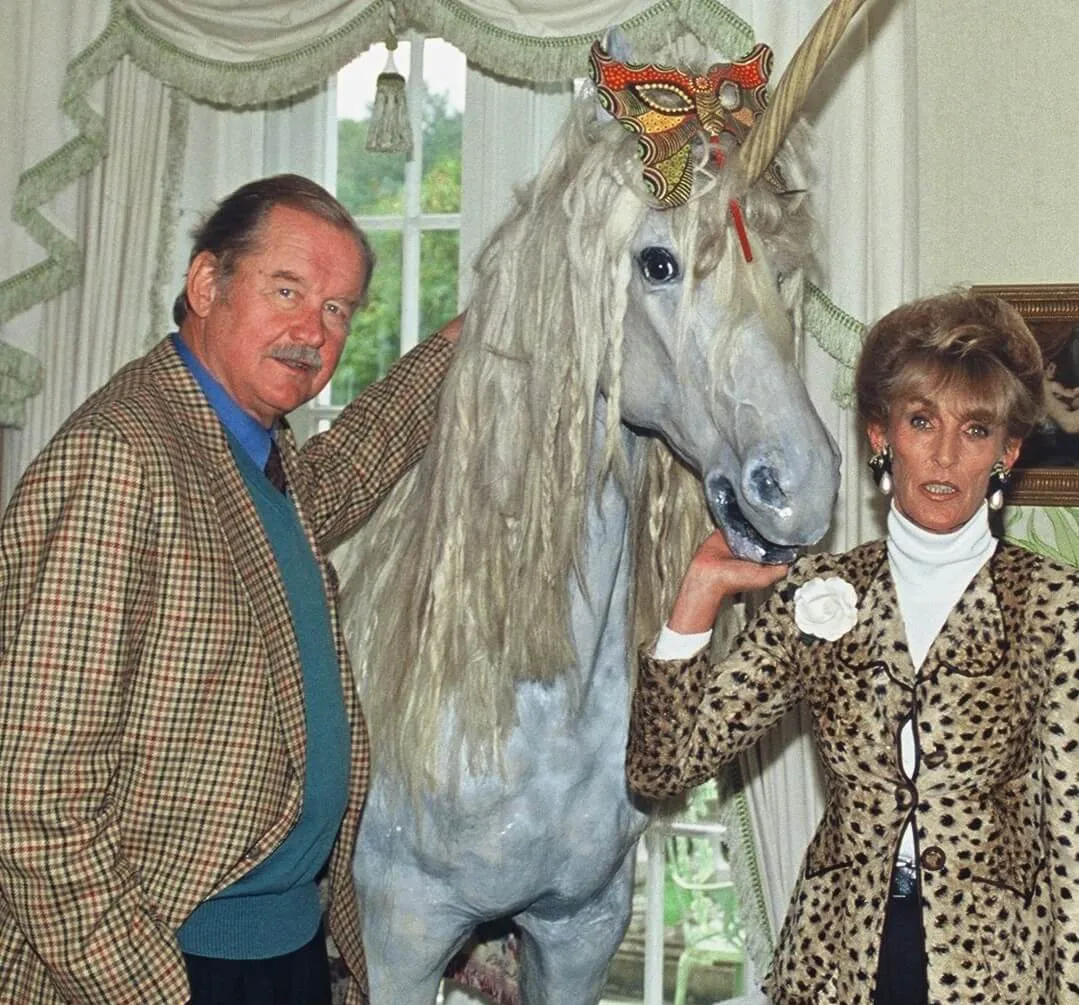
‘Death of a Unicorn’ Is Surprisingly Hypocritical
Death of a Unicorn is a strange mix of comedy, monster movie, and social satire. On the surface, it’s an entertaining horror story with quirky humor and wild creatures. However, the film misses the mark by becoming hypocritical in its portrayal of wealth and charity.
‘Death of a Unicorn’ criticizes behavior Hollywood stars engage in all the time
The movie’s female lead, Ridley (played by Jenna Ortega) a strong-willed character, criticizes the rich Leopold family for using charity work to clean up their image. This message, while intended to offer social commentary, feels hollow when we remember that Hollywood itself is full of people who do exactly the same thing.
In Death of a Unicorn, Ridley attacks the Leopold family for hiding behind their charitable donations to look good. She argues that their wealth and power allow them to avoid accountability. The film presents this as a criticism of how the rich often manipulate public perception through acts of charity. This message could have been powerful, calling attention to the flaws in how the wealthy present themselves as philanthropists. However, this satirical jab loses its weight when we remember the setting. Hollywood is notorious for similar behaviors and Death of a Unicorn is a Hollywood movie.
Hollywood has a hard time satirizing itself well
Hollywood celebrities are often seen at charity galas, donating large sums of money, or even starting their own foundations. On the surface, this looks like a good way to give back to society. But in reality, many celebrities are also accused of using these acts to enhance their public images. It’s no secret that some Hollywood figures donate to charity not out of a sense of altruism but to avoid bad press or to gain positive publicity. In that context, Death of a Unicorn feels like it’s throwing stones from a glass house.
The irony becomes even more apparent when considering that the filmmakers behind Death of a Unicorn are part of the same industry. They too are in the business of creating and maintaining reputations. Hollywood movies, including this one, often benefit from charity events or endorsements, just like the rich characters they criticize. While the film tries to call out the Leopold family for their hypocrisy, it doesn’t acknowledge the industry’s own involvement in similar practices. This oversight makes the satire feel disconnected and unconvincing.
‘Death of a Unicorn’ simplifies complex issues
Another issue with the film’s approach is how it simplifies the complex dynamics of wealth and charity. By focusing on one wealthy family’s actions, the movie misses the larger picture. The problem with charity and wealth in society is far more nuanced than the film suggests. Rich people using charity to clean up their image is just one part of the issue. Death of a Unicorn doesn’t dive deep enough into the systemic problems that allow this behavior to continue.
In conclusion, Death of a Unicorn tries to be a sharp social commentary on wealth, reputation, and charity. However, the film’s hypocrisy undermines its message. By criticizing the rich for behaviors that Hollywood itself indulges in, the movie becomes a case of “do as I say, not as I do.” While it’s entertaining, the satire lacks the depth and self-awareness needed to make a meaningful impact. Ultimately, the film’s attempt to mock the Leopold family’s charity-driven image laundering only highlights Hollywood’s own role in the very issue it tries to criticize.


